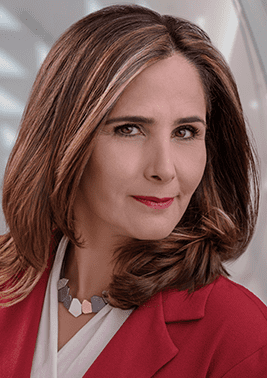Written by Nadine LeBoeuf
As individuals in developing countries we take for granted the right to education, the right to acquire a driver’s license, and the right to marry whoever we choose so long as both parties are in agreement.
In many developing countries where the rules of the country are often reflective of religious practices and traditions, many are in favor of men and are limiting the power of women. The rules are stifling to the potential of women and the potential of her family, friends, neighbourhood and country. Women are limited in their potential and feel stuck in the stagnation their oppressors have created. If only these women were granted the same equal rights and opportunities as men, their untapped potential would raise entire nations out of poverty, reverse environmental damage and improve her and her family’s health and well-being.
While there is a gender bias that persists in countries like Canada and an even greater inequality between countries, there are also women who stand up for themselves and others, and have become influencers on the changes that need to be made. Here is a glimpse at a few of these women and how they have stood up for the equality of all human beings.
Education is the Gift that Continues to Give | Malala Yousafzai
Malala was born in 1997 in Pakistan. From a very young age her mother and father instilled in her the importance of an education. Her father ran a girls’ school in their village. When the Taliban took over her village, they banned things like playing music and watching TV. They also banned girls from going to school. If you didn’t follow the Taliban’s rules, you were harshly punished. Despite the Taliban’s presence, Malala spoke out about the right for girls to learn. This did not go unnoticed when one day traveling home on the school bus a masked gunman shot her in the side of the head. News of Malala’s bravery traveled the world as she recovered in a hospital in the United Kingdom.
Today Malala continues to speak out for the right of all girls to attend school. She has created a foundation alongside her father with the goal of every girl achieving the future she chooses.
In a recent podcast with The Economist, Malala indicates that there are more platforms and opportunities today where girls can be heard. But when it comes to policy making, the voices of girls and women are missing and we need to ensure that their voices are heard in order to participate in these conversations. Women are where the solutions to problems like conflict, health, economic stagnation and climate change lie.
Read more about how Malala Fund is advocating for the education of girls around the world.
Becoming the Driver of My Life | Manal Al-Sharif
Up until June 2018, Saudi Arabia was the only country where women will go to prison if they are caught driving a car.
In Saudi Arabia, the interpretation of Islam is on the extreme end of the spectrum resulting in the prohibition of alcohol and receiving a fine or jail time for public displays of affection. For women, there are even more prohibitions and permission is required to do many things that women in developed countries wouldn’t think twice about. For instance getting married, divorced or even setting up a bank account requires permission from a woman’s male guardian (father, brother, husband or even a son she gave birth to). Many of these laws were enforced by the mutawa (religious police) including the law against women driving vehicles. The strictness of these laws was challenged during the Arab Spring when many other revolutionary causes took place in the Middle East. This was when soon-to-be activist Manal took to social media on June 17th 2011 and asked all women to drive their cars in the resistance movement called “drive your own life”and was linked to #women2drive.
Doing what you believe in takes courage and does result in consequences in order to make oneself heard. Manal spent nine days in jail and was charged with “driving while female”. Though change has not occurred overnight, in May 2017 King Salman allowed women access to education and health care without permission from a male guardian. Later on in June 2018, King Salman granted permission for women to drive in Saudi Arabia, but not without consequence to the activists who brought light to the movement. Several women who participated in the #women2drive movement are still in detention.
Though Saudi Arabia is a country full of inequalities, Manal is resilient in her approach to raising awareness. To Manal, resilience means “when you are down, you get up and you continue.”
Art as the Great Communicator: Sonita Alizadeh
In 2006 when Sonita was almost 10 years old she was sold to be married, but it didn’t work out the first time. Due to the presence of the Taliban in Afghanistan her family fled Afghanistan to Iran. When Sonita was 14 years old, she escaped yet another arranged marriage when living as a refugee.
Since 2001 the practice of arranged marriage has been prohibited but families who are the most traditional and the poorest still follow this practice. Nearly 10% of Afghan girls are married before the age of 15 and 35% before the age of 18. Other statistics state that 12 million girls are forced into marriage every year before the age of 18. Children and wives are exposed to sexual abuse, exploitation, violence and malnutrition. To think of today’s western society as far ahead of countries practicing arranged marriage is an optimistic thought. Just 70 years ago, Simone de Beauvoir recounts in her book The Second Sex, originally published in French in 1949, that in Western civilization the topic of marriage bared elements we find familiar today in poor more traditionalist societies who still practice arranged marriages: The young girl’s freedom of choice has always been much restricted; and celibacy— apart from the rare cases in which it bears a sacred character— reduced her to the rank of parasite and pariah; marriage is her only means of support and the sole justification of her existence. Beauvoir goes on to say that “in such circumstances the girl seems absolutely passive; she is married, given in marriage by her parents. Boys get married, they take a wife.”
Sonita knew she had to speak out against arranged marriage and violence experienced by friends who were forced into marriage. While working as a cleaner at a gym she heard a rap song by Eminem and she knew at that moment that music would be her medium to tell her stories and the stories of the voiceless. With the help of a female Iranian director, she produced a video clip of her rapping about the arrangement of child marriages. Thanks to the views of her video clip she was able to escape the Middle East and get an education in the United States.
She says in an interview broadcasted by Radio France that “Art can be the greatest weapon, the most powerful weapon. The current situation in Afghanistan is a great reason why there should be more artists, Afghan artists. Through music, through art there could be millions of stories told.”
The Result of Equality
By giving all girls and women the right to an education, we are strengthening the economy, creating healthier citizens and families. We are also closing the gap on inequality. Conflicts occur when there is an imbalance in relationships. We see this happen between humans, countries, business deals and climate change. Empowering women is the key to creating the today we want to live in.
By speaking up, there is always a greater chance of being heard than to remain silent. With social media playing the roles of the catalyst to revolutionary movements and the connector of activists, we are living in an era where change is more accessible than ever.
The first step in initiating a change is to change one’s perspective. When you realize you are in control of your destiny, you are your own person and you will fight to keep that. Women are their own person and they define themselves.




